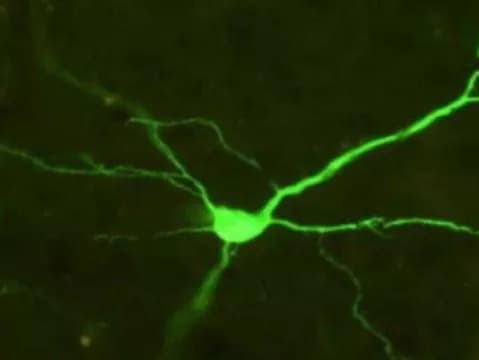
Risk-Taking Behavior In Teens Caused By Imbalanced Brain Activity
Adolescents among humans and non-human animals alike are more inclined to engage in heightened risk-taking behavior, exploration and novelty seeking. Although these attributes provide adaptive value in enabling individuals to gain importance in the world, including independence from parents, if taken too far, this tendency could lead to potentially dangerous behavior, including drug use, harmful drinking, addiction, unsafe sex, and risky driving, which may result in unintended injuries, violence and/or even premature death. A new Dartmouth study just published in Current Biology demonstrates for the first time, the causal relationship between behavioral control and a specific imbalance in brain function that exists during adolescence.
Adolescent-specific behavior may be driven by an imbalance in activity between the prefrontal cortex (PFC), an area of the brain involved in cognitive control and inhibition, which does not fully develop until the late teens/early 20s, and the nucleus accumbens (NAC), which plays a central role in reward-seeking and addiction. Past research has found that adolescents that engage in risk-taking behavior have trouble inhibiting such behavior as compared to either adults or pre-adolescents. Researchers have postulated that the low activity in PFC with concurrent high activity in NAC, an imbalance which appears to exist only during adolescence, is essentially at odds with each other.
To test the causal imbalance, Heidi C. Meyer, a graduate student working in Professor David J. Bucci's Neurobiology of Learning and Memory Laboratory at Dartmouth, used a chemogenetic approach, known as Designer Receptors Exclusively Activated by Designer Drugs (DREADDs), to simulate the imbalance that takes place during adolescence by simultaneously altering the activity in PFC and NAC. DREADDs enables researchers to "remotely control" the activity of brain cells by temporarily turning cells off or on in a region for a short period of time, by injecting a virus that transfers genes for a synthetic receptor, which is only responsive to a synthetic drug that is also administered through a simple injection, which turns brain cells off or on temporarily.
For the study, researchers used adult rats, which normally have balanced activity in these areas and used the DREADD approach to decrease the activity in PFC and simultaneously increase activity in NAC while the rats learned an inhibition task. A tone presented by itself signaled to the rats that a food reward would be delivered; however, a light preceding the tone indicated that there would be no food reward. Past studies on inhibition have typically examined reactive inhibition or the ability to stop a response once it has been initiated; yet, Dartmouth's study tested proactive inhibition or the ability to withhold an inappropriate response in the first place. The rats that were treated with the DREADD approach exhibited a dramatic delay in learning to inhibit their response to the tone when it was preceded by the light, requiring twice the amount of training to learn the behavior. The delay in learning this inhibitory response matched the delay that the researchers observed in normal adolescent rats during an earlier study. The new findings also illustrate how this form of proactive inhibition is age-dependent, which is consistent with the researchers' previous work on how inhibition is impaired during adolescence.
"Understanding how specific changes in brain function during development relate to behavior is critically important for determining why some individuals engage in excessive risk taking behavior during adolescence," says David J. Bucci, the Ralph and Richard Lazarus Professor of Psychological and Brain Sciences at Dartmouth and senior author of the study. "Our hope is that these findings will inform new means to minimize the potential for engaging in drug use and other harmful behaviors during this important period of development."
Materials provided by Dartmouth College. Note: Content may be edited for style and length.
Disclaimer: DoveMed is not responsible for the adapted accuracy of news releases posted to DoveMed by contributing universities and institutions.
Primary Resource:
Meyer, H. C., & Bucci, D. J. (2016). Imbalanced activity in the orbitofrontal cortex and nucleus accumbens impairs behavioral inhibition. Current biology, 26(20), 2834-2839.
Related Articles
Test Your Knowledge
Asked by users
Related Centers
Related Specialties
Related Physicians
Related Procedures
Related Resources
Join DoveHubs
and connect with fellow professionals

0 Comments
Please log in to post a comment.